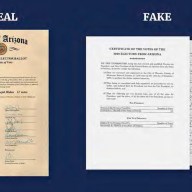Patricia is from St. Vincent. She arrived in Canada 11 years ago as a visitor and never left. For almost a decade she has been working here six days a week, without authorization, as a personal support worker for Sam, a 76-year-old bed-ridden senior. His relatives consider her a God-send.
Manuel is from Portugal. He arrived at about the same time as Patricia. He too overstayed his visitor’s status because work was hard to find back home. He started doing carpentry work for a small sub-contractor. Over time, Manuel set up his own business and is now doing extremely well. He owns his own home and has several crews of Canadian employees working on different job sites. They all depend on him for their livelihood.
Pastor Lee is from South Korea. He has been here for several years administering to a local church. He hired an immigration consultant to handle a routine extension of his religious worker status but, somehow, it got messed up. He is now out of status and beyond the period of time in which he can apply to have it reinstated. He is deeply troubled by his predicament, but is unable to abandon his flock.
None of these individuals have made refugee claims in Canada, nor do they intend to.
So, what possible impact can Immigration Minister Jason Kenney’s refugee reform package have on these fictional, but common, scenarios?
Lots.
Bill C-11 was designed to speed up our lethargic refugee process and was touted as the mechanism by which claims could be decided in two months as opposed to the current average of 19 months.
However, the bill contained a bit of a surprise. A subtle but important change in language, not to our refugee program, but to Canada’s Humanitarian and Compassionate (H&C) program which had previously remained undiminished by many previous governments.
For many years, our immigration laws gave the federal cabinet and, more recently, the immigration minister, the power to admit virtually anyone to Canada as a permanent resident “owing to the existence of compassionate or humanitarian considerations.”
Accordingly, applicants and their counsel have always submitted and relied upon evidence of hardship that affected not only the applicant but also their spouses and children and others who benefited by the applicants presence in Canada. In Patricia’s case, this would include her elderly employer; in Manuel’s, his Canadian employees; and, in the case of Pastor Lee, his congregants.
In 2002, the language was changed slightly giving the minister the power to admit an applicant “if it is justified by humanitarian and compassionate considerations relating to them, taking into account the best interests of a child directly affected.”
This wording, i.e. “relating to them,” was sufficiently ambiguous to allow the minister to continue to consider the hardship of removal, not only of the applicant, but also of others directly affected by the applicant’s circumstances.
In sharp contrast, the proposed legislation requires the minister to look only at the H&C considerations “relating to the foreign national, taking into account the best interests of a child directly affected.”
Under the current legislation, there is little doubt that the minister could take into account the hardship on Patricia’s employer, Manuels’ employees, and Pastor Lee’s congregants. However, if the proposed language is adopted, this may no longer be the case. This subtle change could turn the above cases from winners into losers since the Federal Court might eventually uphold the inevitable finding that the hardship to anyone other than the foreign national is irrelevant.
The bill also creates an unprecedented exclusion to our H&C program. Currently, if a person made a refugee claim but lost because they were either poorly represented, were missing some compelling evidence at the time of the hearing, or because the country conditions were not as bad as they are now, they could always apply on H&C grounds setting out these circumstances in the hopes that the Minister would grant them permanent admission. However, Bill C-11 expressly states that when deciding an H&C application, “the Minister may not consider the factors that are taken into account in the determination of whether a person is a Convention refugee…or a person in need of protection”.
Kenney currently has the power to take into account virtually any H&C consideration to ensure that justice is done.
Why is he now looking to abdicate this power even in circumstances where a person’s life might be at risk?
Guidy Mamann practices law in Toronto at Mamann, Sandaluk and is
certified by the Law Society of Upper Canada as an immigration
specialist. For more information, visit www.migrationlaw.com or email metro@migrationlaw.com
















